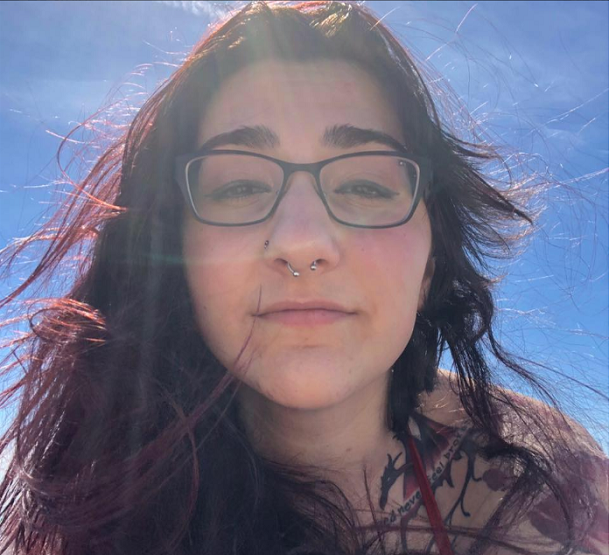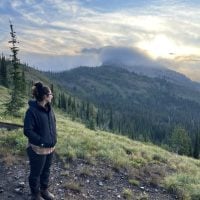Well, as it turns out, parenting is relentlessly important.
How we are seen, heard, touched, and held—especially in the first few years of our lives—determines the trajectory, in many ways, of the rest of them.
If we learn our needs will be met, we are loved and cared for, and that those around us are containers for us when we can’t handle ourselves, we most likely, barring the extremes, grow into adults who believe in ourselves and have the capacity to explore with curiosity.
Unfortunately, this also means that if our needs are inconsistently met, not met at all, met with punishment, or we are shown we cannot be held or that we are too much, we internalize. This may be a tad dramatic, but in many ways, we fracture.
And we go out in the world holding un-truths around what and who we are and what and who we deserve.
Examples of this include core beliefs that echo feeling we are too much, or not right, or unlovable, or wrong, or not enough of something. These beliefs then manifest in almost every aspect of life.
We are too fat, or too thin, or not strong enough, or too bulky.
We aren’t pretty enough, our nose is too big, or we are too hairy.
We aren’t smart enough; we aren’t something enough.
We have to change. We are unlovable.
Of course we go through the world this way. When we were helpless, we had to create a narrative that kept our caregivers in the right, for they were all we had, and without them, we would die.
This means our story is that we are wrong. As kids, with our small four-year-old brains that want frosted chocolate cake and dinosaurs picture books, we internalize that the way we exist in the world is wrong.
We change to meet the needs of our caregivers and do our best to get them to meet our needs. Or we silence our needs. We stop talking. We learn to talk about things that don’t matter to us. We focus on food or clothes, weight or academics.
That’s what I did for most of my life.
I lived in a level of silence I didn’t know existed until I started talking.
Then I entered college and realized I had no idea what I wanted to do. I’d gone through phases: veterinarian, doctor, psychiatrist, mechanic, psychologist, social worker, police officer, firefighter, dietician, chef, physical therapist, but I couldn’t decide on anything.
I didn’t know. I could probably do anything—well, not anything anymore. My GPA isn’t that good.
How the hell was I supposed to know what I wanted to do with my life when I didn’t even know how to make dinner? I’d lost any ability to know what my own needs were. I’d learned they were wrong and silently tucked them away so no one could hurt me with them.
But it turns out, our needs will get themselves met even if we can’t hear them, and a lot of what feels like uncontrollable behavior erupts as a consequence.
Now, even though I’m more aware of myself than I was at the start of college, I find that anything close to a true statement of what I want or what my needs are comes out as an almost-silent stutter and an “I don’t know.”
I do know, damn it, but what if I say it and no one hears me? What if it’s wrong?
How much would that hurt?
The threat is enough to keep me silent, even though I desperately want to connect.
I’ll walk out of the gym, after an intense silence of me trying to say something but saying nothing to my coach, while he waits.
I’ll hang out awkwardly after I’ve finished my workout, probably annoying the other ladies I lift with (extra pressure, I can’t f*ck that up) trying to muster up a coherent something to get a little closer to another something. But I’ll end up doing one of three things: saying nothing, stuttering into an I don’t know, or asking a question so vague it’s as unhelpful as my silence.
And I’ll leave, defeated. I was trying to be seen, but I just ended up with a foot in my mouth and as silent as ever.
That’s the consequence. I learned silence.
I grew up and learned that not connecting, hiding, saying the quickest thing to end a conversation, and being alone were the most effective ways of feeling safe.
And I learned that from my parents.
Parenting is damn important. Now, I know they say (I don’t know who they are, but they say it) don’t blame the parents, but do, do blame the parents. But also blame the society that didn’t support those parents.
Parents need support. Parents need to be able to parent. They need to be able to reflect their kids, hold their kids’ emotions, struggles, and needs, and meet them consistently enough to teach them stability. They can’t do that when they work 80 hours to make rent and put food on the table.
We need to support parents. My parents had no support. There wasn’t a safety net to pick up the pieces that fell through the cracks.
I was a piece that fell through a big hole in the support network that didn’t exist. My parents had to raise me in a small town after immigrating to America, while also divorcing in the messiest of ways, and while I can blame them, I also recognize that there just wasn’t anyone there for them.
It shows.
If they’d had a friend who came over and saw I was playing alone while my dad was working, what would I have learned?
If a teacher in elementary school taught me that safe, secure relationships could exist, how would I show up now?
If my mom had someone to confide in, how could she have shown up for me instead of using me as the confidant?
Parenting matters a whole f*cking lot. We don’t support parents only to support parents; we support parents so that we raise kids that have fewer obstacles in their lives.
If children learn they are safe, they show up significantly more in their lives. Their biology allows them to connect, instead of freezing in terror and telling them to hide.
We want a brighter future for our kids. That’s the whole basis of having children, for them to have something better than we did.
We can’t do this alone. Parents can’t do that in a vacuum.
That whole saying, “It takes a village”?
Well, it really does.
~












Read 6 comments and reply